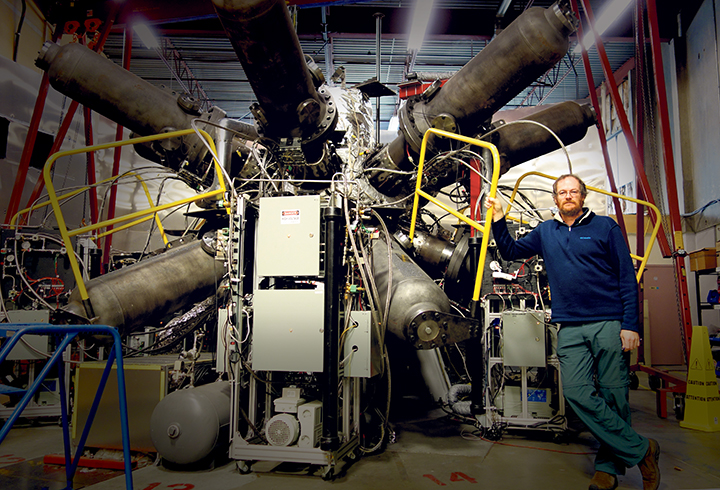While engaging in new research, I suddenly realized that our modern economy is having a dramatic effect on urban life. Increasingly shrinking access to real estate is killing the Garage Tinkerer.

Image credit: therac.ca
So who is the Garage Tinkerer? Do you remember those crazy guys who were always experimenting and building crazy stuff in their garages? Maybe people like Michel Laberge, Colin Chapman, Elliot Handler, and the Lockheed brothers? The “Garage Tinkerer” tends to be an engineer with a lot of talent who just so happens to have a lot of space to tinker with technology - and sometimes build a large company. The garage tinkerer isn’t always an entrepreneur, but is a very important part of the economy.
The Garage Tinkerer is able to do those crazy experiments and build companies because he or she always had spacial security. An experiment or small business run inside a garage didn’t often worry about external threats such as “moving” or the signing of a new lease. The garage was a sacred place where a small business could be safely created and the home was already cared for. And if the Garage Tinkerer’s project grew even bigger, the economics to support moving into a large office space were in the Tinkerer’s favor.
I’m not the first to write about this topic. Though I believe the problem is just as economic as it is cultural. The garage tinkerer is up against a growing threat of surging real estate prices and growing costs of living. In large coastal cities the arrangement of real estate is changing. Real estate prices are allowing more “settled” socioeconomic classes to acquire the extra space (especially garage space). The socioeconomic classes that typically gave birth to the garage tinkerer are cashing out. But because these groups of people still have the know-how of engineering, they’re either forced to move to inland cities that lack forward-thinking engineering cultures or they’re forced to move to smaller homes or condos.
I believe this had an equal and opposite reaction on economic growth. It now becomes more difficult for the Garage Tinkerer to exist. So what’s happening is the only people who have an opportunity to experiment, invent, and enter a market are the ones who have a sizeable amount of cash to do so (or they invest in others). They can rent the extra space and afford the extra materials. Anyone who has lived in a dense urban environment can vouch for the lack of creative and experimentive space. That’s why organizations like Hack Space and Noisebridge are growing in popularity. Yet they’re still not a place the Garage Tinkerer can call “home”. They, too, require rent.
I believe the Garage Tinkerer’s lack of physical space has been largely related to the tremendous growth of the software industry. Many tinkerers are left without a place to build physical things, so instead they turn their creative energy towards cheap real estate: the internet. The barrier to entry in software is incredibly low. You can create a website overnight with little-to-none experience. And the access to programming knowledge is nearly free (all you need to do is have a computer). However, we’re losing out on so many more cool things when we limit ourselves to software.
So what are the solutions? Although I’m a personal fan of profit-motivated solutions since I believe they are the true makers of change, this problem seems to require a community-based effort. Some of the solutions might include:
- New condo regulations requiring garages/workspaces in high-rises
- Better land-use planning by cities
- Open-minded businesses that allow creative use of unused space
- Online exchanges/listings of workshop space
- Laws supporting intellectual property development in unusual spaces
Is there any immediate, short-term solution to this growing problem? No. Not unless the tinkerers start seeking cheaper real estate in small inland cities. But I am not convinced they will find the creative communities (and investment) that help them learn and thrive that can be found in a coastal city. Until then, it’s certainly an opportunity for the growing hackspaces in cities worldwide.
